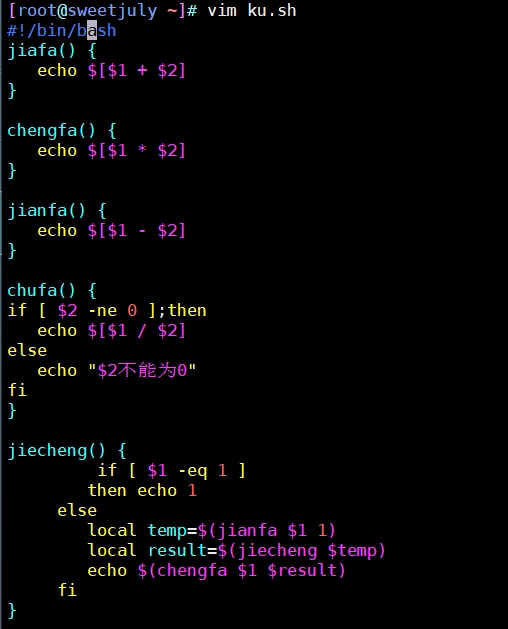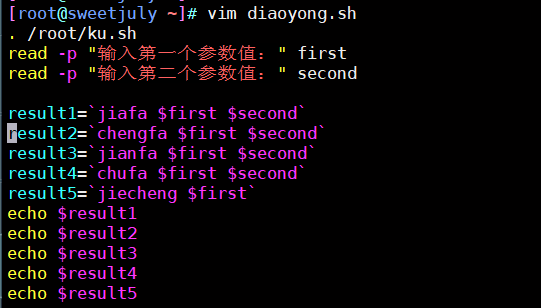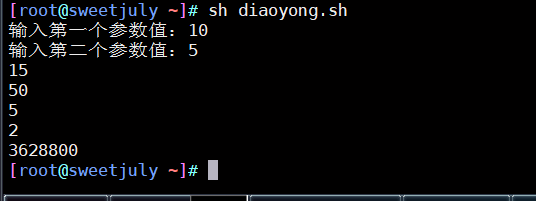1. Functions
What is a function?
- A function is a block of function code that can be used many times, a closed (space), and can be called freely in the code. Encapsulation of functions can reduce duplicate code development and improve code utilization. Functions can be passed along, using pre-defined content within the function to process different data parameters that are passed in.
- Functions can also be objects or values, and they can exist in variables, arrays, and objects.
- A function can be passed as a parameter to a function and returned by the function, while the function has properties.
- Functions always have return values (except for constructors, which return constructor function calls by default and display returns when the constructor call is executed)
Basic Shell Function Format
First:
function Function name {
Command Sequence
}
Second:
Function name{
Command Sequence
}
Function return value
Functions can be passed as parameters and returned as return values. Can $be used in scripts? The variable displays the value.
Principles of Use
- The return value is taken as soon as the function ends because $? Variable returns only the exit status code of the last command executed
- Exit status code must be 0~255, exceeding time value will be divided by 256
Give an example:
(1) Defining functions with functions
#!/bin/bash
function lizi{
read -p "Please enter a number:" a
a=$[$a*2]
return $a
}
lizi
echo $?
echo "The results are: $a"
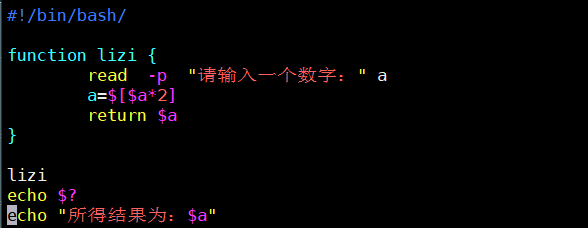

(2) Define with lizi() {command sequence}
#!/bin/bash
lizi (){
read -p "Please enter a number:" a
a=$[$a*2]
return $a
}
lizi
echo $?
echo "The results are: $a"
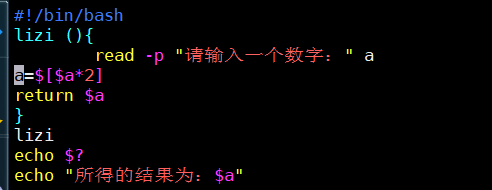

Parameter transfer of functions
You can pass parameters to a function when it is called. Inside the function body, the value of the parameter is obtained in the form of $n, for example, $1 for the first parameter, $2 for the second parameter,... Even if the position parameter is used for parameter transfer.
Give an example:
Method 1: Find the product of two numbers
#!/bin/bash
function chenji {
sum=$[$1 * $2]
echo $sum
}
read -p "Please enter the first parameter:" first
read -p "Enter the second parameter:" second
chenji $first $second


Method 2: Find the product of two numbers
#!/bin/bash
chengji () {
sum=$[$1 * $2]
echo $sum
}
chengji $1 $2
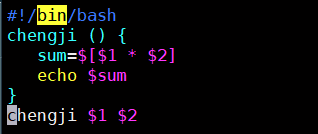

Scope of function variables
- Functions are valid in Shell scripts only in the current Shell environment
- Variables in Shell scripts are globally valid by default
- Limit variables to functions using local commands
Give an example:
#!/bin/bash
aaaa () {
local i #Setting local variables
i=8
echo $i
}
i=9 #Global Environment
aaaa
echo $i
#!/bin/bash
aaaaa () {
i=8 #local is not added, that is, it is a global variable
echo $i
}
aaaaa
echo $i
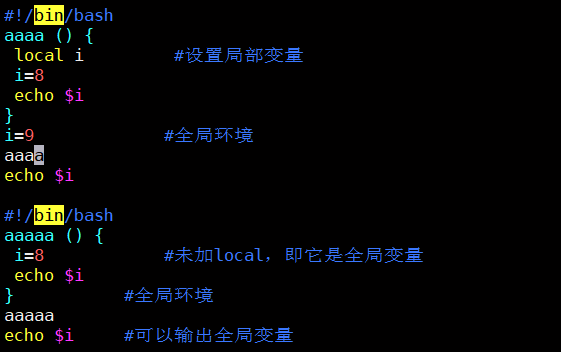

2. Function Recursion
What is function recursion?
Recursive function call (a special nested call): In the process of calling a function, the function itself is called directly or indirectly.
Recursion must have two distinct phases:
- Recursive: Call recursively one level at a time, emphasizing that the scale of each recursive problem that enters the next level must be reduced
- Backtracking: Recursion must have a clear end condition that ends when it meets the condition and begins one layer at a time.
The essence of recursion is to approach a final result by repeating it over and over again
Typical Function Recursion----Factorial
What is a factorial?
The product of multiplying consecutive natural numbers from 1 to n, called a factorial, with the symbol n! Express. Such as 5!= 1 × 2 × 3 × 4 × 5. Provision 0!= 1
Give an example:
First example: factorial recursion
#!/bin/bash
fact (){
if [ $1 -eq 1 ]
then echo 1
else
local temp=$[$1 - 1]
local result=$(fact $temp)
echo $[$1 * $result]
fi
}
read -p "Please enter the number you want to calculate:" num
result=$(fact $num)
echo $result
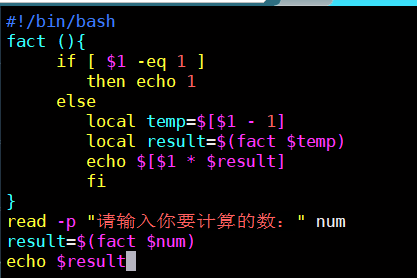

Example 2: Catalog recursion
#!/bin/bash
myfunc (){
for i in $1/*
do
if [ -d $i ]
then echo "$2$i"
myfunc "$i" " $2"
else
if [ -x $i ]
then echo "-----$2$i"
fi
fi
done
}
###main###
OLDIFS=$IFS
IFS=$IFS:
for a in $(echo $PATH)
do
myfunc $a ""
done
IFS=$OLDIFS
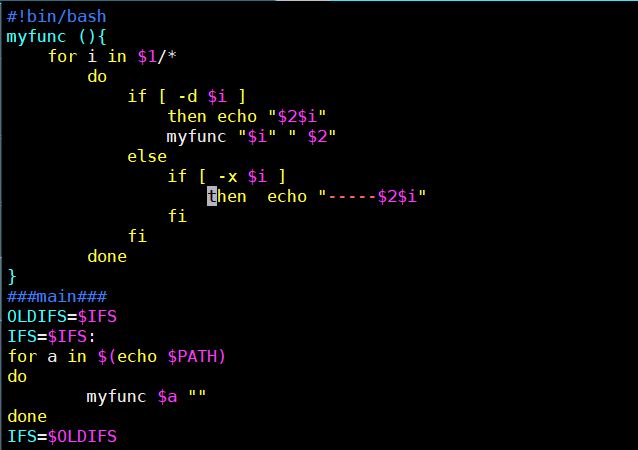

3. Function Library
What is a function library?
Personally, the shell function library is essentially a script that contains multiple functions (functions are universally applicable).
Give an example:
New Function Library
1,ku.sh:
jiafa() {
echo $[$1 + $2]
}
chengfa() {
echo $[$1 * $2]
}
jianfa() {
echo $[$1 - $2]
}
chufa() {
if [ $2 -ne 0 ];then
echo $[$1 / $2]
else
echo "$2 Cannot be zero"
fi
}
jiecheng() {
if [ $1 -eq 1 ]
then echo 1
else
local temp=$(jianfa $1 1)
local result=$(jiecheng $temp)
echo $(chengfa $1 $result)
fi
}
2,diaoyong.sh:
#!/bin/bash
. /root/ku.sh
read -p "Enter the first parameter value:" first
read -p "Enter the second parameter value:" second
result1=`jiafa $first $second`
result2=`chengfa $first $second`
result3=`jianfa $first $second`
result4=`chufa $first $second`
result5=`jiecheng $first`
echo $result1
echo $result2
echo $result3
echo $result4
echo $result5
